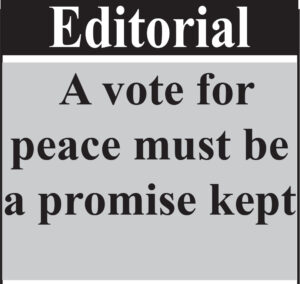
The Transitional National Legislative Assembly’s adoption of the Declaration of Peace and Cessation of War (DPCW) should be more than a ceremonial gesture but a solemn promise to the people of South Sudan.
For a country ravaged by decades of conflicts, displacement, and fractured governance, the symbolism of this motion is powerful. But symbolism alone cannot heal wounds or rebuild trust. What matters most to the citizens is implementation.
Though not a binding treaty, the DPCW articulates principles that resonate deeply with South Sudan’s aspirations of nonviolence, disarmament, human rights, and inclusive governance. Its alignment with the Transitional Constitution, the UN Charter, and previous peace agreements provides both legal and moral grounding.
However, still, as lawmakers noted, peace declarations must be more than paper commitments; they must translate into lived realities.
Concerns raised about the document’s origin and procedural transparency are valid, but should not overshadow the urgency of peace. Citizens are desperate for stability, dignity, and opportunity.
Implementation requires political will therefore, the government must establish the proposed multi-sectoral task force, expand peace education and youth engagement, and redirect military spending toward development and empower communities on building local peace economies while making inclusive governance central to all initiatives.
This motion is a step forward, but the journey is long. Parliament has spoken; now the nation must act. Peace is not declared it is built, nurtured, and protected. Let this be the beginning.



